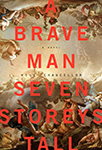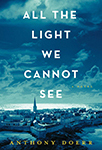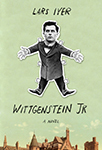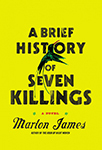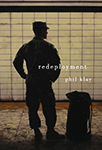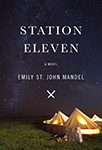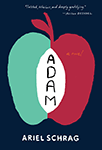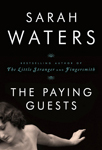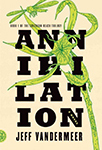by Jesse Ball
30% OFF at Powell’s »Victor Vazquez: The first and titular story in Phil Klay’s Redeployment is a 16-page, good old-fashioned, classic American, Old Yeller/Of Mice and Men/“man’s gotta do” dog-killing story mashed up with a rough-and-tumble, spartan, Tim O’Brien-ed-out, quasi-emo war tale. It’s a quick and easy read and I would have found the gruff, unpretentious style to be charming, and even strangely “fun” if the story didn’t essentially ask the reader to feel more emotion for the death of a dog than the hundreds of thousands of Iraqi humans—a million by some counts, and around 120,000 of them civilians—who have died since the US’s brutal and illegitimate invasion of Iraq in 2003.
A few people I grew up with are in the military and I know them to be basically good or at least well-meaning people, but with politics that are more or less fundamentally different from mine. Their worldview is something to the effect of “War is a dirty job but somebody has to do it,” and mine is more along the lines of “War is a dirty job and nobody has to do it.” I understand that my opinion probably comes off as idealistic and naive to them. Their opinion comes off as misguided, regurgitated, uncreative, and defeatist to me.
The United States’s defense budget is larger than those of the next five largest militaries combined. In the last half century or so the US military has killed more than nine million people on record in over 200 incursions and 20 separate wars globally. It has illegally imprisoned, tortured, and raped. It is a force of global imperialism pretty much unprecedented in human history, and to be a soldier in that army and write a book with the opening line “We shot dogs,” is, in my opinion, not the classiest look. I understand the intention may have been to be “edgy,” confrontational, ugly like how war is ugly, but I already know war is ugly, and I just don’t feel like musings about America’s military action abroad are best led with a dog-killing metaphor.
There’s some interesting enough stuff going on stylistically in the collection. “OIF” is a story about survivor’s guilt told using a cute one-note gimmick: inserting as many military acronyms as possible, a trick that can read alternately as a postmodern tip of the helmet to DFW and/or Klay parodying his own jargon-heavy style, typical of war writing. If anything, he’s self-aware. In “Money as a Weapons System” (probably the best title in the collection, though “In Vietnam They Had Whores” is a pretty crazy one too), the protagonist worries that’s he’s “a fraud and a war tourist,” which is a pretty sensitive moment, I guess. There’s no shortage of dark wit, dry observational humor, unadorned pathos, etc., and I think I can see and even in a context-free vacuum appreciate what he’s doing most of the time; I have no issue with Klay’s skill as a writer. I guess my problem is with war writing as a genre. I think the polite thing to say is that “I’m not the reader” for it.
And still, I understand the significance and need for the voice of the soldier and the veteran in literature, culture, etc. Many of these people have seen up close pretty much the ugliest of humanity and they have a lot of existential wisdom for it. I will say, however, that there’s definitely no shortage of those narratives in America’s mass mythology. We have been inundated with these narratives since we were kids, not just in history and literature classes in school but on TV, and in movies and video games. As beautifully wrought and subtle and nuanced as some of these tales can be, they still largely tend to serve the function of propaganda, regardless of the author’s intention. Even in condemning war, they end up romanticizing, glorifying, and legitimizing it on some level (often on many levels) and are added to a giant heap of stories that do the same.
Years back I ran into an old friend from high school on the bus. I hadn’t seen him since he’d left for Iraq and he had been back for a year or so. He was working at Nordstrom as a security guard and he was carrying a picture frame with slots for 16 individual photos. He told me, “When I counted and saw there was 16 spaces on the frame I knew I had to get it to frame my 16 kills.” Apparently he’d taken pictures of each Iraqi he shot. Over the course of the bus ride he told me he was on medication for PTSD and had insomnia, paranoia, and frequent nightmares. I didn’t really know how to tell him that I thought that framing his kills was probably not the best way to deal with that, and I ended up not saying anything and just was like, “OK, man, take care, dude,” when I got off at my stop.
I feel more or less the same way regarding Redeployment: compelling yet repulsive, ultimately leaving me ambivalent.
Elena Ferrante’s Those Who Leave and Those Who Stay is one of the best books I’ve read in a while. It’s the third book in her Neapolitan trilogy and I hadn’t read the first two so it took a few chapters of flipping to the index to see who was who and what was what before I had my bearings. But once I caught my stride I was hooked. She writes with an intensely sensitive attention to emotional detail, an unforgiving honesty about class, and a masterful knack for weaving the political seamlessly with the personal.
The overarching story centers around a post-World War II ghetto of Naples—not sure where exactly, Ferrante seems to only refer to it as “the neighborhood“—over the course of roughly half a century. It follows the narrator Elena, who leaves—kind of: She goes off to school in Pisa, publishes a book, gets engaged, and in this book returns to stay with her family before moving to Florence with her fiancé—and Raffaela, usually referred to as Lina or Lila, who stays—kind of: She marries the grocery store manager, leaves him for another dude, and when that dude knocks up this other chick she leaves him to go live with this other dude in the suburbs of Naples, which is where we find her in this book. Regardless, the point more or less is that Elena’s on this sort of aspirational, upward trajectory, mingling in academic and literary circles, while Lila stays local, works at the grocery store and then at a sausage factory, and they’re both swept up, somewhat reluctantly, into the communist/anti-fascist student movement of the time, Elena as an intellectual and Lila as a worker.
But the book resists and at times dissolves the easy classifications and cut-and-dry shorthand I just employed to try to sum it up. You can’t clearly say that Elena is squarely an intellectual and Lila is squarely a worker. They’re close friends who both come from poverty and both possess intellect and both perform labor of sorts, and in the minutiae of their relationship you see how these larger ideas play out on a human level, all through the organically feminist lens of the deep spiritual connection between these two women who, in two distinctly different ways, are seeking freedom from the strictures of society as a whole, from the expectations (and lack thereof) of their neighborhood and the pressures of various men and women in their lives that insist they behave this or that way. It’s a real constellational soap opera of ideas.
So yeah, in conclusion, I wasn’t mad at the style of Redeployment but also wasn’t really feeling it as a book. And Those Who Leave and Those Who Stay is basically a flawless piece of literature and the clear winner.
Kevin: I suspect this will be one of the more controversial verdicts of this year’s tourney, John, but before we discuss it, I want to thank Judge Vazquez for his thoughtful analysis. He obviously read the novels and considered them soberly, and he eloquently and honestly stated his opinion. That is everything we ask a judge to do.
There is a difference between opinion and criticism, and logic functions differently in one than it does in the other. As an opinion, I think Judge Vazquez’s statement regarding Redeployment is unassailable. You might disagree with it, but it is consistent and understandable. On the other hand, his particular convictions, or maybe the purity of his convictions, force him to a conclusion that is difficult to defend in the realm of criticism. He believes that war narratives, even ones critical of war, inevitably glamorize battle. This is bad. Therefore we should stop writing them.
Of course, there will not be an end to war stories because Judge Vazquez doesn’t like them. But his position excuses him from having to deal with the book itself. By cutting off Redeployment on an existential level, he doesn’t need to engage with its content. For instance, his flippancy regarding the title story—“I just don’t feel like musings about America’s military action abroad are best led with a dog-killing metaphor”—doesn’t acknowledge that the story is specifically about a soldier who returns from war and finds it difficult to face the reality of what he saw and did in a war zone. He is talking about killing dogs because he can’t talk about the other thing—the dog-killing is specifically not about killing dogs. Curiously, Judge Vazquez doesn’t want to talk about the other thing any more than Klay’s character does.
I think that story worked on him better than he thought.
In any case, I’d argue that engaging with the war narrative is important for literary criticism in a country perpetually at war. To say you don’t like that we are perpetually at war and so will condemn the ongoing depiction of war in fiction is not really a tenable position.
Actually, it is tenable as a reader, which ultimately Judge Vazquez is. You can choose not to read war stories the same way you can choose not to read erotica. And we don’t ask our judges to certify themselves as critics. They can reject a book for any reason, and I was glad to be provoked by Judge Vazquez’s reasons in particular.
That said, I would have advanced Redeployment.
John: I haven’t fact-checked this link, but it claims that we’ve been at war 222 out of the 239 years of our nation’s existence. There is maybe some wiggle-room as the analysis includes the Cold War, when we were not directly involved but were at least active (does arming the Mujahideen in Afghanistan in the ’80s count?), but it’s pretty striking to see the nearly constant projection of our military might around the globe. War seems to be the American way.
I think it’s interesting to consider the question of whether or not war writing is indeed a genre and if so, if it inherently legitimizes war. Vazquez is right: War narratives are, unsurprisingly, everywhere, and they are often politicized (e.g., American Sniper). If our consumption of war narrative somehow weighs as a vote for war, I’ll give up war stories without a second thought.
And I think there is an argument to be had here. American Sniper (which I haven’t seen) is either a vainglorious tribute to the best of America’s fighting men or a cautionary tale of the human and spiritual destruction of going to war. That there is a significant percentage of the populace who believe the former rather than the latter seems to indicate that Judge Vazquez may be on to something: that war narratives fuel war, or at least that those who are eager for war can make use of these narratives to further those goals.
I can’t say I feel particularly drawn to war narratives, but Tim O’Brien’s The Things They Carried, and more recently, Ben Fountain’s Billy Lynn’s Long Halftime Walk, are two books I’d put near the top of my most-admired list. They are also both anti-war books, and in the case of Billy Lynn’s…, an explicit critique of the unthinking war narrative in which brave young men and women sacrifice themselves for what we non-combatants would like to believe is a noble cause.
I don’t think Redeployment is in quite the same league as those books, which is perhaps why it is vulnerable to Judge Vasquez’s opinion.
But the notion that we have enough of these stories, period, end of sentence, just doesn’t sit with me. If war is the American way, we’re obligated to write about it—though of course, no one is obligated to read those narratives.
Maybe Redeployment doesn’t reach the necessary threshold (it didn’t for me) but the idea that there’s no more room on the pile seems wrong.
That said, I agree with the judgment. I’d put Ferrante through.
Kevin: Redeployment does not have enough juice (in the form of votes) to get it through to the Zombie Round, so the National Book Award winner will not be taking home a Rooster. If the Zombies were held today, All the Light We Cannot See and Station Eleven would be the abominations that return for a shot at the championship.
Tomorrow, we start the semifinals as A Brief History of Seven Killings takes on The Paying Guests.



